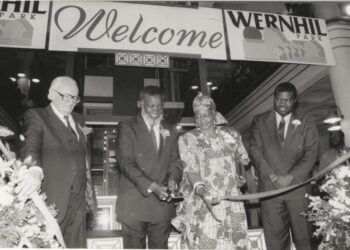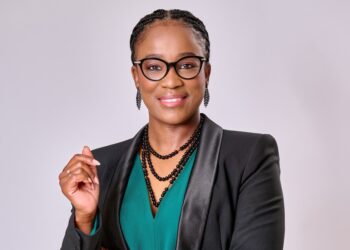
By Onesmus Keudnaeko Joseph
The corporate world is becoming interesting day-by-day! Not sure if many of you have observed that, the ability to speak up and challenge ideas and proposals as raised on floors of boardrooms and corridors of offices is more essential and this is attributed to insights and knowledge as emerging tools in steering companies and business.
Yet, many of us, (both employees and leaders) find ourselves grappling with a common dilemma particularly how do you voice dissent with your superior without jeopardizing your professional standing?
And is it always worth the risk?
While agreeing with a superior may feel like the safest path, please take it from me; it is not always the best decision. Remember that the best approach to look at it is that we all owe loyalty to the juristic person (organisations) as opposed to an individual who may come and go, but a firm remains. “Ovanhu ohavaiâ€!
The purpose of dissent is to own your opinion and contribute to well-informed organisational decisions. Recently, I have observed a concerning trend; individuals hesitate to voice differing opinions, assuming that disagreement with leadership is wrong or disloyal.
Frankly, not voicing up your opinion on a matter is a disservice to an organisation and as a Corporate Governance Professional, I should remind ourselves that we all owe a duty of excising due skills and professional care by interrogation ideas and proposals with our perfectives first.
Recently, I came across a powerful account shared by the former personal guard of our late Former President and Founding President, H.E Dr Sam Shaafishuna Nujoma; may his soul rest in eternal peace.
The Guard recounted how, throughout his service, often advised “Tatekulu” the President ironically differing in views on various matters. However, he always ensured that his opinions were communicated respectfully, enabling “Tatekulu,” to make well-informed and sound decisions.
As we reflect on the legacy of President Nujoma our “Old Man”, we celebrate his leadership marked by distinction and excellence. His governance was, in part, shaped by diverse perspectives demonstrating the power of dissenting, indeed A Good Sin. Eeno osho shili, leaders thrive by having genuine information, thoughtful input, and tolerance of others even when their views differ with theirs.
I mean ultimately, the power is still with leaders to decide anyway. Â
From a strategic foresight perspective, a subject that is close to my heart, we need individuals who genuinely make their positions known and ensure their viewpoints are communicated to those in charge.
In essence, it affords leaders and decision-makers to have a 360 degrees views and insight on a matter and subsequently make a decision that will stand a test of time and shock of external forces.Â
As for me, when someone agrees with me from the onset, it is a Red Flag. I often question whether they are fully engaged with the matter or probably they are simply trying to avoid conflict and it signal a lack of insight and context.
If you decide to speak up, approach the situation thoughtfully; leaders will listen to you but surely not BOSSES. Present your concerns in a professional and constructive manner and often it is good to recognize that the final decision rests with the Principal.
“Ashike eshi shafimana osheshi” However what is essential is that, offering honest input shows you are engaged, informed, care and committed to the organisation’s success.
Firms and organisation need your independent thinking and surely sharing your perspective fosters a culture where innovation thrives, and decisions are made based on comprehensive understanding.
*Onesmus Keudnaeko Joseph is a passionate advocate for 21st-century business strategy, with a strong focus on strategic foresight and futures literacy as key enablers for navigating multiple future scenarios.He is currently the Manager for Intellectual Property Enforcement and Frameworks at the Business and Intellectual Property Authority (BIPA). With 18 years of diverse experience across both the public and private sectors, his career has spanned roles as a Police Officer, Trained Pilot, Accountant, Intellectual Property Practitioner, and now as a Strategic Management Professional, Business Accountant, Chartered Company Secretary, and Governance Practitioner.He writes in his personal capacity.











